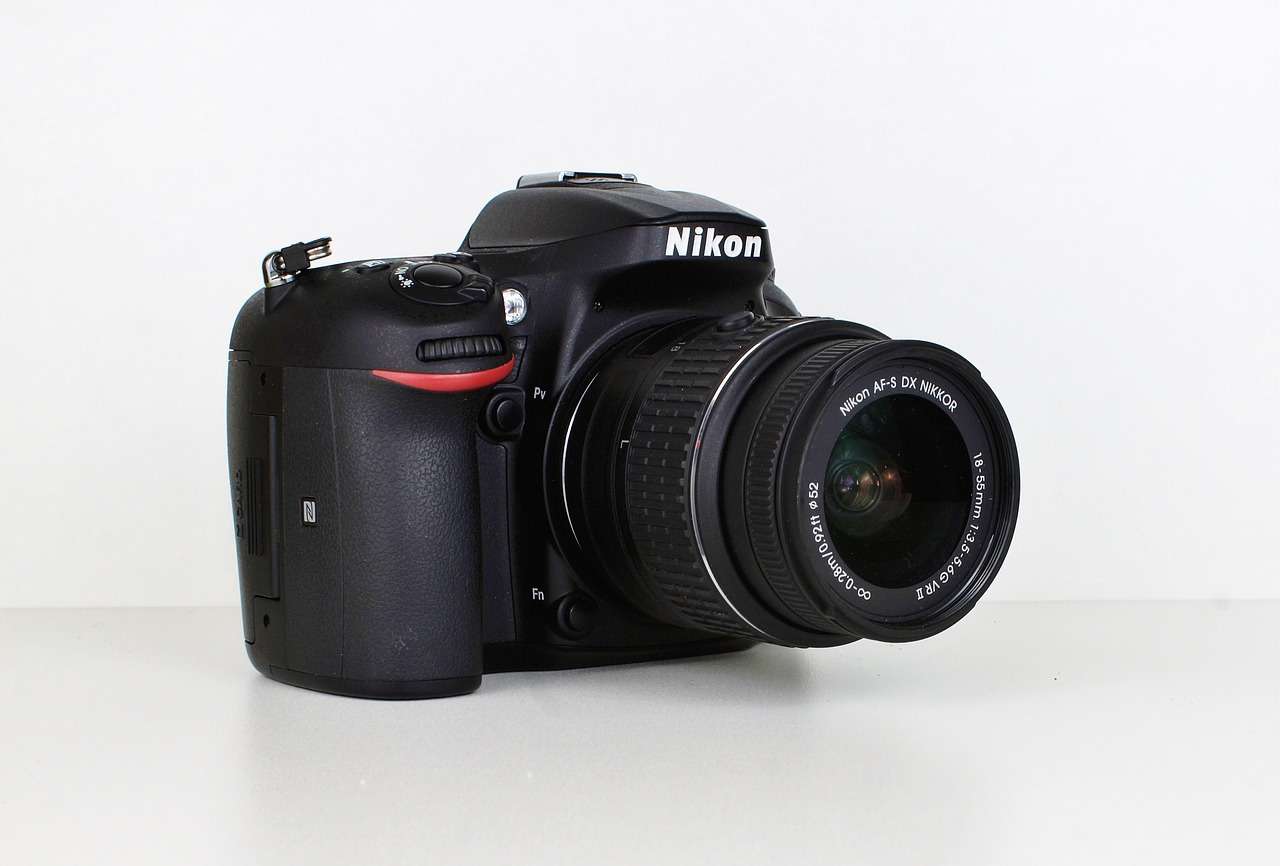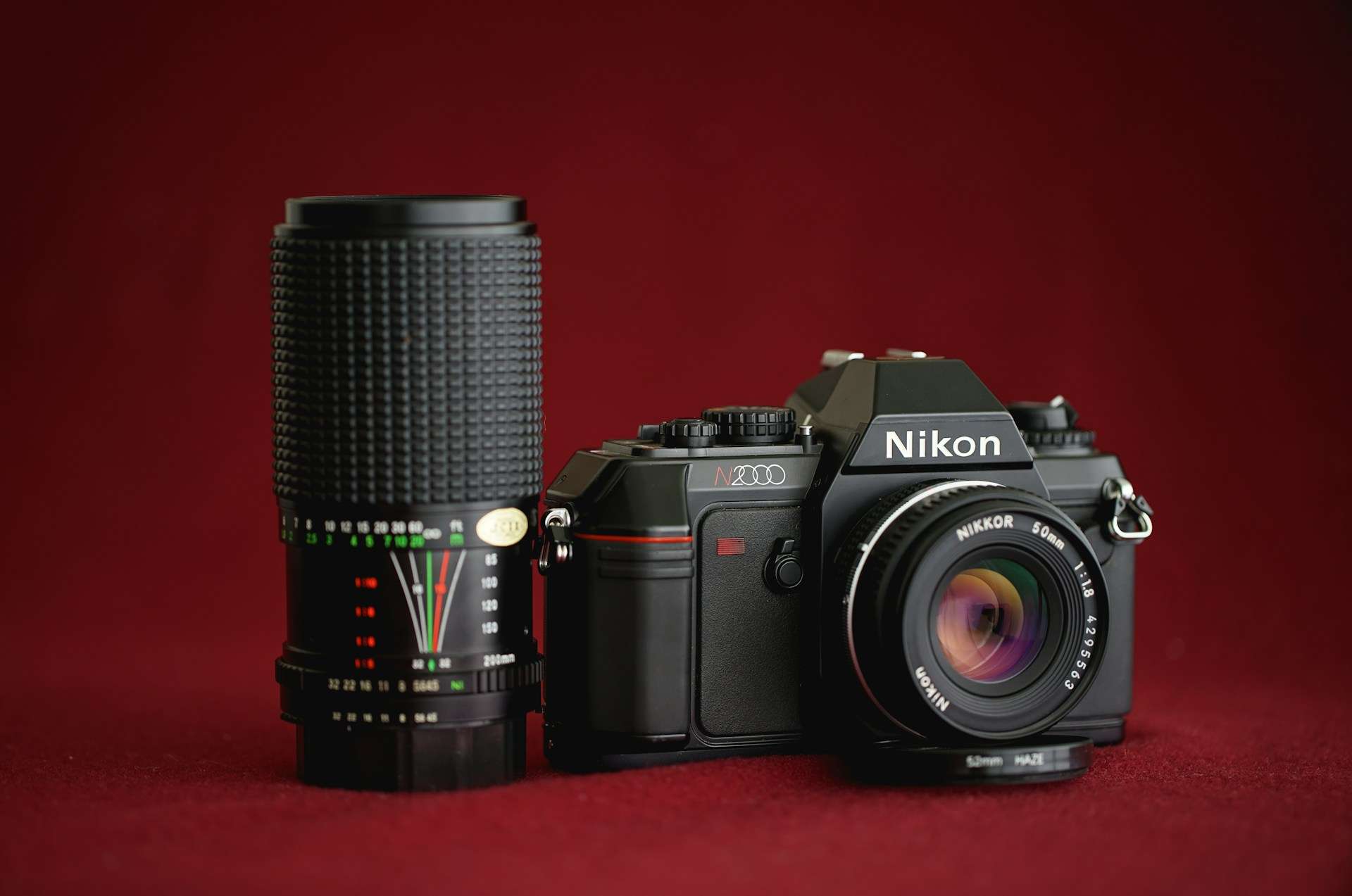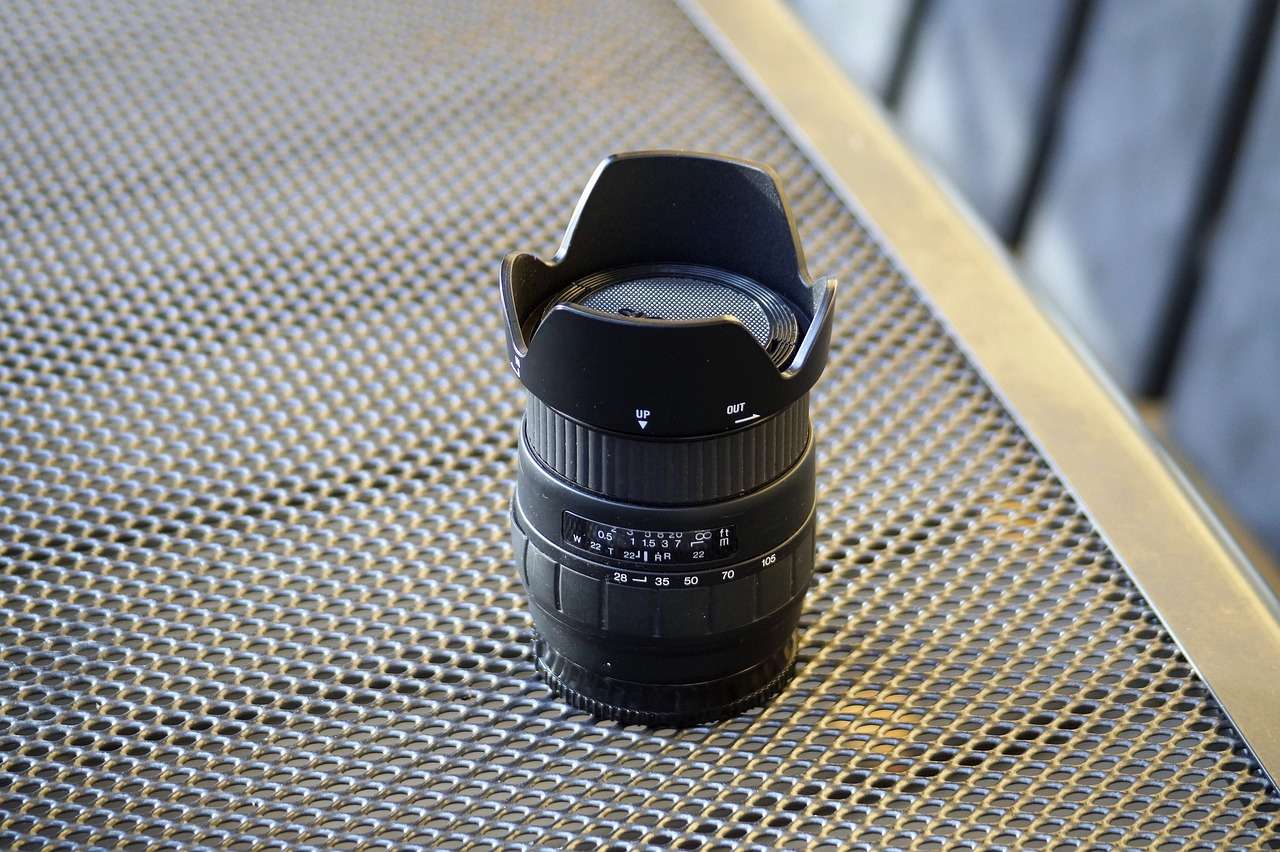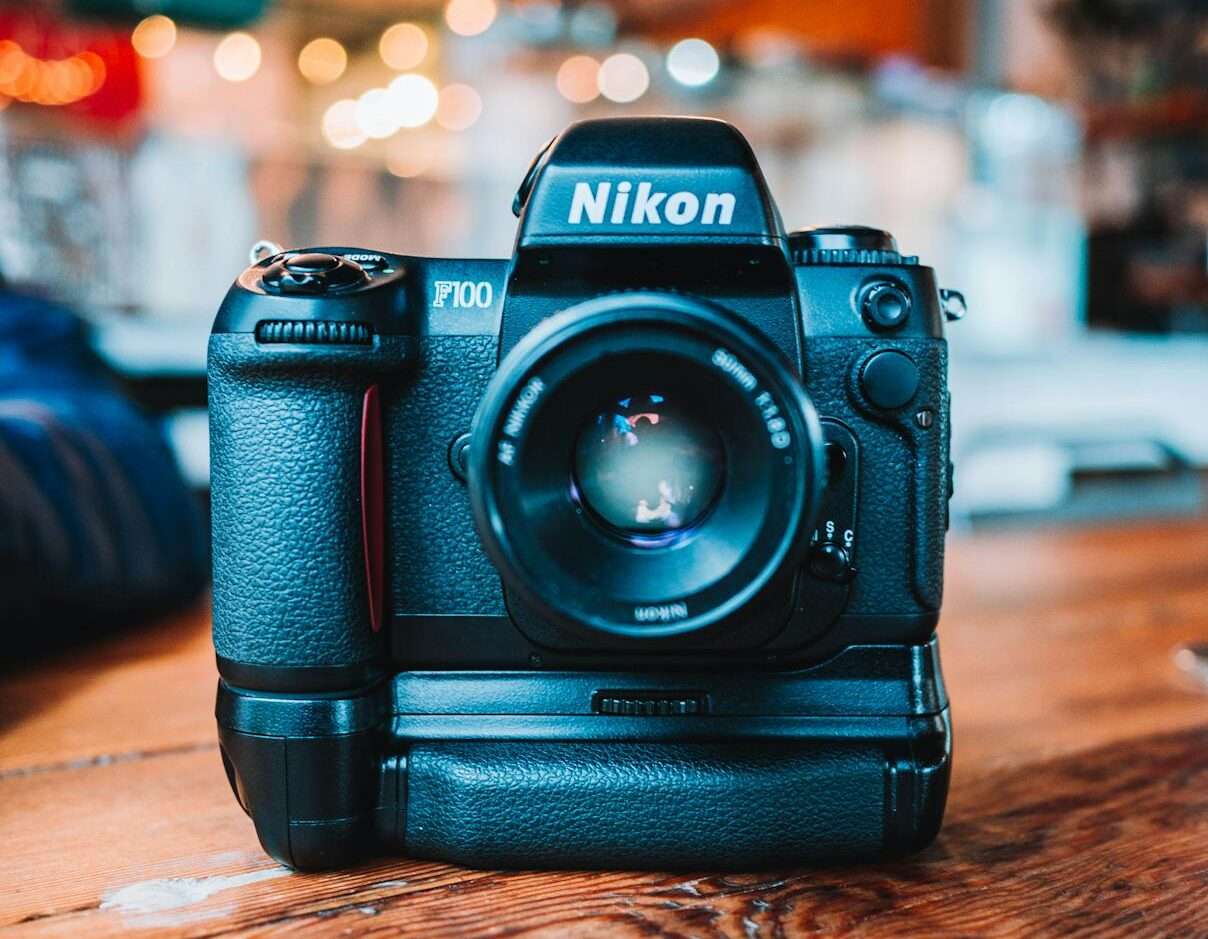When it comes to photography, the Nikon D7200 is a powerhouse. Known for its exceptional image quality, versatility, and advanced features, this DSLR camera is a favorite among both amateur and professional photographers alike. However, to truly unlock the camera’s full potential, investing in the right lenses is crucial. In this guide, we’ll explore the best Nikon D7200 lenses across various categories to help you capture stunning photos in any situation.
Contents
Prime Lenses: Capturing Crisp Details
Nikon AF-S NIKKOR 50mm f/1.8G
The Nikon AF-S NIKKOR 50mm f/1.8G is a must-have prime lens for any photographer. With its fast maximum aperture of f/1.8, this lens excels in low-light conditions and produces beautiful bokeh for stunning portraits. Its lightweight design makes it perfect for everyday shooting, while its sharpness and clarity ensure that every detail is captured with precision.
Nikon AF-S NIKKOR 35mm f/1.8G
Another excellent prime lens for the Nikon D7200 is the Nikon AF-S NIKKOR 35mm f/1.8G. This wide-angle lens is ideal for capturing landscapes, street photography, and environmental portraits. With its fast aperture and silent wave motor, you can achieve tack-sharp images with smooth and quiet autofocus.
Zoom Lenses: Versatility at Your Fingertips
Nikon AF-S DX NIKKOR 18-140mm f/3.5-5.6G ED VR
For photographers looking for versatility, the Nikon AF-S DX NIKKOR 18-140mm f/3.5-5.6G ED VR is an excellent choice. This all-in-one zoom lens covers a wide focal range, from wide-angle to telephoto, making it perfect for travel, landscapes, portraits, and more. Its built-in Vibration Reduction (VR) technology ensures sharp images even when shooting handheld at slower shutter speeds.
Nikon AF-S DX NIKKOR 55-300mm f/4.5-5.6G ED VR
If you’re interested in wildlife or sports photography, the Nikon AF-S DX NIKKOR 55-300mm f/4.5-5.6G ED VR is a fantastic option. With its long telephoto reach, you can capture distant subjects with ease. The lens’s VR technology minimizes camera shake, allowing you to shoot handheld without compromising image quality.
Macro Lenses: Get Up Close and Personal
Nikon AF-S DX Micro NIKKOR 85mm f/3.5G ED VR
For capturing intricate details and stunning close-up shots, the Nikon AF-S DX Micro NIKKOR 85mm f/3.5G ED VR is the perfect macro lens for the Nikon D7200. Its 1:1 magnification ratio allows you to capture life-sized images of small subjects, such as flowers, insects, and food, with incredible sharpness and clarity. The lens’s VR technology ensures steady shots, even when shooting handheld at close distances.
Nikon AF-S VR Micro-NIKKOR 105mm f/2.8G IF-ED
Another excellent macro lens option is the Nikon AF-S VR Micro-NIKKOR 105mm f/2.8G IF-ED. With its longer focal length, this lens offers greater working distance, making it ideal for photographing shy or skittish subjects. Its fast aperture creates a beautiful background blur, emphasizing your subject against a creamy bokeh backdrop.
Specialty Lenses: Expand Your Creativity
Nikon AF-S NIKKOR 14-24mm f/2.8G ED
The Nikon AF-S NIKKOR 14-24mm f/2.8G ED is a game-changer for landscape and architecture photographers. With its ultra-wide-angle focal range and fast aperture, this lens captures expansive vistas with breathtaking clarity and detail. Its advanced optics minimize distortion and aberrations, ensuring that your images are sharp from edge to edge.
Nikon AF-S NIKKOR 70-200mm f/2.8E FL ED VR
If you’re a portrait or event photographer, the Nikon AF-S NIKKOR 70-200mm f/2.8E FL ED VR is an essential addition to your kit. This telephoto zoom lens delivers stunning image quality and beautiful background blur, perfect for isolating subjects and creating compelling portraits. Its fast aperture and VR technology make it ideal for low-light situations and capturing fast-moving subjects with ease.
Conclusion
Investing in high-quality lenses is essential for maximizing the potential of your Nikon D7200. Whether you’re capturing portraits, landscapes, wildlife, macro subjects, or specialized genres like architecture and events, there’s a lens out there to suit your needs. By choosing the right lenses for your photography style and preferences, you can take your images to the next level and unleash your creativity like never before.
FAQs about Nikon D7200 Lenses
- What factors should I consider when choosing a lens for my Nikon D7200?
When selecting a lens for your Nikon D7200, consider your preferred photography style (e.g., portraits, landscapes, macro), budget, focal length requirements, aperture needs, and desired features like image stabilization or weather sealing. - Are Nikon D7200 lenses compatible with other Nikon DSLR cameras?
Yes, most Nikon D7200 lenses are compatible with other Nikon DSLR cameras, particularly those with a DX-format sensor. However, it’s essential to check compatibility with your specific camera model and mount type to ensure seamless operation. - What is the difference between prime and zoom lenses?
Prime lenses have a fixed focal length, meaning they cannot zoom in or out. They typically offer wider apertures, resulting in better low-light performance and shallower depth of field. Zoom lenses, on the other hand, have variable focal lengths, allowing you to zoom in and out to frame your shot. While zoom lenses offer versatility, they often have smaller maximum apertures compared to prime lenses. - Do I need specialized lenses like macro or telephoto for my Nikon D7200?
Whether you need specialized lenses like macro or telephoto depends on your specific photography needs and interests. Macro lenses are ideal for capturing extreme close-up shots of small subjects, while telephoto lenses are excellent for capturing distant subjects or achieving compressed perspectives. Assess your shooting preferences to determine if these specialized lenses would benefit your photography. - How can I ensure optimal performance and longevity of my Nikon D7200 lenses?
To maintain the performance and longevity of your Nikon D7200 lenses, handle them with care, avoid exposing them to extreme temperatures or moisture, use lens caps and hoods for protection, clean them regularly using appropriate tools and techniques, and store them in a dry and secure environment when not in use. Additionally, consider investing in lens filters for added protection against scratches and dust.
Read Now: How to Use Nikon D7200 Camera and How to Clean a Nikon Camera




